Image by Pixabay
By Danielle, Contributing writer
They help us feed the world.
They are safe and substantially the same as unaltered food.
Is that true? Are we willing to bet our family’s health on new technology that alters the very DNA of our food?
What are GMOs?
GMOs, or genetically modified organisms, also called genetically engineered (GE), are organisms which have been genetically altered in a laboratory. It’s important to note that this is different (horizontal gene transfer) than natural crossbreeding (vertical gene transfer), which happens by itself in nature. The DNA of one species is actually injected into another species.The altering of bacteria in GMOs cannot occur naturally, outside of a laboratory.
GMOs were created to live through harsh pesticide chemicals for which any plant would normally not survive. The DNA in the organism is altered with Bt toxin, a bacteria, so that it will not die when sprayed with harsh pesticides during farming. Then, to add injury to insult, harsh pesticides are sprayed on the plants multiple times during the growing process to kill any weeds around the plants.
Unfortunately, in addition to the pesticides, studies show that Bt toxin is harmful to humans..
Pesticides are constantly to poor health outcomes, including infertility , gastrointestinal damage, accelerated aging, and much more. This isn’t just hurting our bodies, pesticides can now be found in umbilical cords of newborns. Study after study is showing us what we can figure out on our own, GMOs are not safe.
But, “they are the same!” Um, nope. Those who says GMOs are the “same” as their natural counterparts are basing that off of studies (which were cut short –no longer than 90 days – because if they were not, you would have seen cancerous tumors growing on the test subjects) that show that the macronutrients in GM foods match the macronutrients in natural foods. Micronutrients are not addressed, and we know that the vitamins and minerals in our foods is what fuels our bodies.
GMOs have been banned or restricted in over 60 nations around the world. The United States is struggling to just label it. Over 80% of processed foods on the shelves in groceries across the U.S. contains GMO’s, and some pesticides used in the U.S. are outlawed in other countries.
Where are GMOs hiding?
Any crop sprayed with a pesticide is a concern, but you can guarantee a product sold with any corn (corn syrup), canola (also called rapeseed),or soy in a processed food is a GMO. Also, any wheat product that is not organic.
You can identify any product which has been verified as not containing GMOs by the label seen below. You will see the non-GMO project verified on any product that fits its labeling rules.
Image by nongmoproject.org
It’s important to note that foods grown organically cannot be labeled as such if they used GM seeds or were sprayed with chemical pesticides, so you know you are getting a GMO-free product when you buy organic.
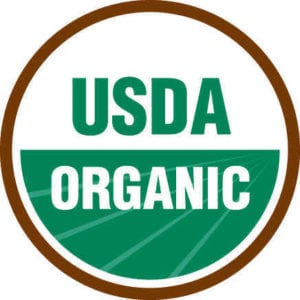
Image by usda.gov
Unfortunately, food is not your only GM enemy. Medications and vaccines also use genetically modified organisms, and these can be even more detrimental than the GM food.
Ethical Concerns Surround GMO Use
I cannot move on without touching on ethical concerns of altering the DNA of our food supply. If you are a Christian, there’s a clear sin in altering God’s creation, including seeds and the aborted fetal DNA in vaccines.
GM companies patent seeds, controlling the food supply. Though large, chemical companies may tout that GMOs feed the world, the reality is that most farmers in third world countries are denying to use this product because after one year, the seeds are no longer usable. This is by design, so that the farmer must purchase seeds from the chemical company every single year.
Passing seeds down from harvest to planting each year is something that has always been done to preserve our species. Now, doing so can wind even an American farmer in a law suit. In fact, U.S. farmers have been sued for just having some of the GM seeds blow into their fields from adjacent fields. GM farming also has been shown to have a negative health outcome on the farmers, themselves. This is one thing in our country, but when the seed is your entire livelihood, there can be devastating effects.
Buying organic and nonGMO can seem pricier, but there are a number of ways to reduce your food budget costs and still buy healthy food.
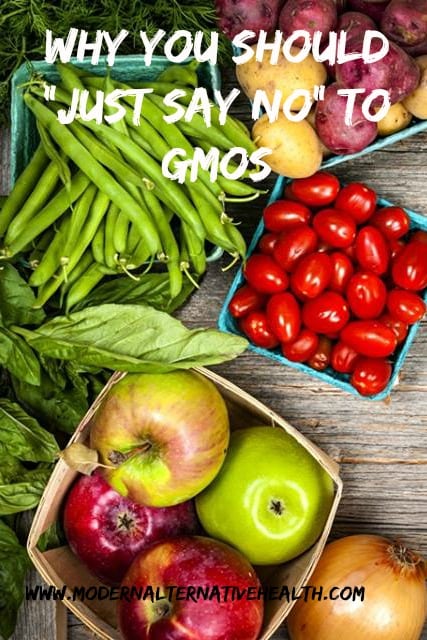
Additional Resources:
- Check out the nonGMO Project
- Read up on Say No to GMOs
- Team up with Moms Across America to bring awareness to your community
- Watch the documentary “GMO OMG,” which is currently on Netflix

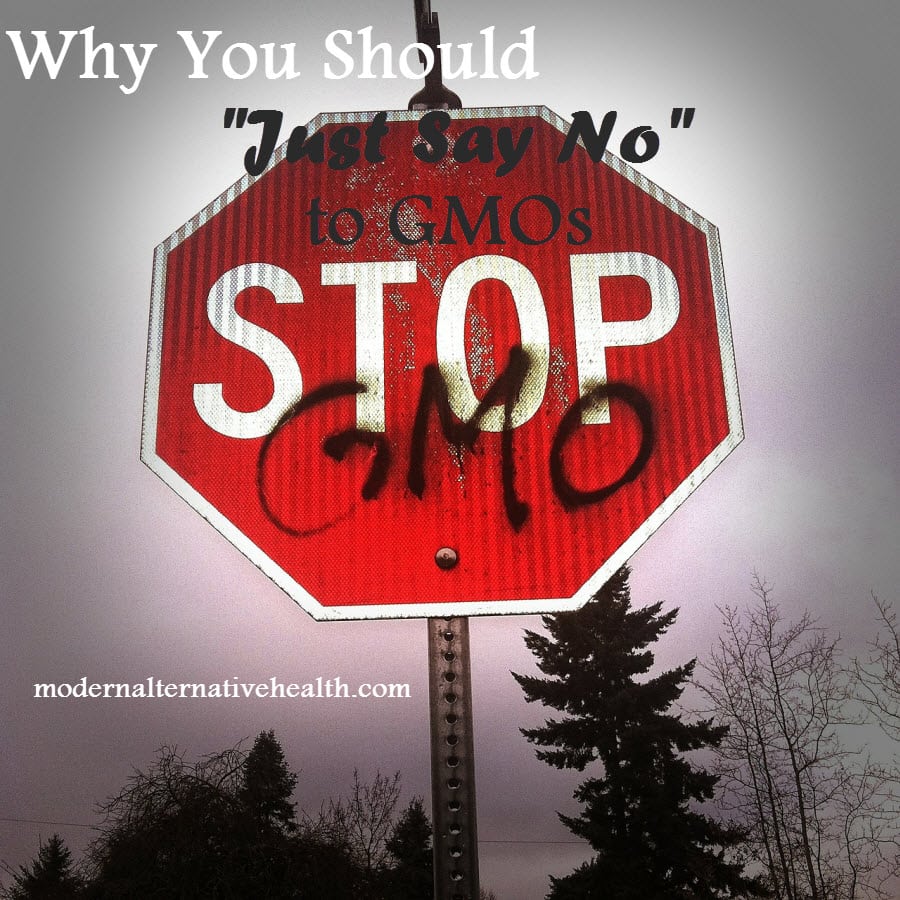
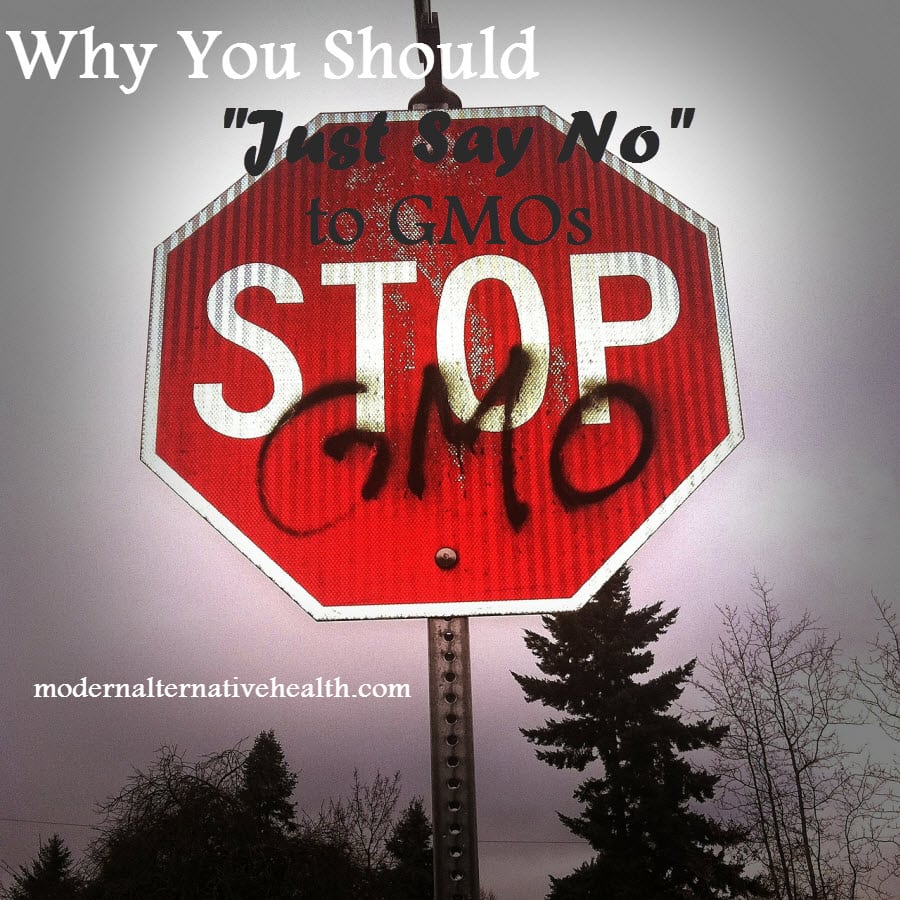
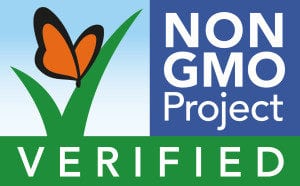





I strongly disagree with your statement that “altering God’s creation” is inherently sinful. (Is building a dam to create a lake sinful? After all, that alters the river!) Abortion and all other murder is clearly prohibited by Scripture, but “altering God’s creation?” I am curious to know what Scripture you would use to back that up.
Great article!! Thanks!!
Great article. I learned something new! Thank you!
Such a great article and such a shame we even have to worry about this….
[…] To learn more about GMO foods and why they should generally be avoided, check out this article here. […]
[…] To learn more about GMO foods and why they should generally be avoided, check out this article here. […]
[…] In addition, the GM corn or soy is also doused multiple times while growing with pesticides. GMOs damage the gut and disrupt your child’s immune […]
[…] Basically, the attitude is “they’re going to pass something, we might as well make it something we can live with.” Large corporations complain that packaging changes are too expensive (which they do all the time and in fact have GMO lingo on their European products), or that it would suggest to the consumer that the product is not as healthy, which of course could never be true {sarcasm}. […]
[…] but I used vegetable oils, which really aren’t vegetable oils at all, as most are made from GMO corn and soy. Once I started learning how to truly nourish my family, vegetable oils were one of […]